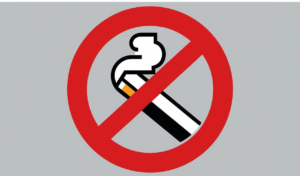How Smoking Impacts Wound Healing: Risks and Challenges
- Blog
- Blog Detail
How Smoking Impacts Wound Healing: Crucial Facts You Need to Know

Mary Huntly APRN FNP-C
Smoking significantly impairs wound healing by reducing oxygen delivery to tissues, weakening the immune system, and depleting essential nutrients. This article dives into how smoking impacts wound healing, exploring the underlying mechanisms and offering insights into the challenges smokers face during the healing process.
Key Takeaways
- Smoking significantly impairs wound healing by disrupting oxygen delivery, weakening the immune system, and causing nutrient deficiencies.
- Nicotine narrows blood vessels and reduces collagen production, leading to slower recovery times and higher complication risks, particularly for diabetic smokers.
- Quitting smoking enhances wound healing, with benefits including improved blood flow, reduced infection risks, and faster recovery, underscoring the importance of smoking cessation support.
Healthcare providers are key in identifying smokers and educating them about the risks of smoking on wound healing. Smoking significantly impairs wound healing, and understanding this connection is essential for both patients and healthcare providers.
For patients, understanding the impact of smoking on wound healing can be a powerful motivator to quit, benefiting both overall health and recovery outcomes.
How Smoking Impacts Wound Healing: Crucial Facts You Need to Know
Smoking brings harmful compounds like nicotine, carbon monoxide, and hydrogen cyanide into the body. These chemicals disrupt oxygen delivery to tissues, essential for healing. Inadequate oxygen prolongs recovery times and increases the risk of complications.
Smoking also weakens the immune system, affecting essential cells and increasing infection risk. Chronic inflammation and reduced cellular activity are common, further hindering wound healing.
Smokers often face deficiencies in crucial nutrients like vitamin C, which is essential for collagen formation. They may require additional vitamin C to compensate. Without it, the body struggles to produce the collagen needed for strong, healthy tissues, resulting in weaker wounds and slower healing.
The Science Behind Smoking and Impaired Wound Healing

The harmful effects of smoking on wound healing are rooted in the body’s healing process. Compounds like nicotine and carbon monoxide disrupt oxygen delivery to tissues, a critical component of healing. Hydrogen cyanide, another toxic substance in cigarette smoke, further complicates this by interfering with cellular oxygen transport.
One immediate effect of smoking is vasoconstriction, the narrowing of blood vessels, which reduces blood flow to healing tissues and delays recovery. Increased blood viscosity, another consequence, further compromises blood flow, making wound healing more difficult.
Smoking also weakens essential immune cells necessary for wound healing, increasing infection risk. Impaired oxygen and nutrient supply, combined with reduced immune function, significantly delays wound healing and can lead to chronic wounds.
Chronic inflammation and reduced cellular activity are common among smokers, further inhibiting healing. Smokers also face depletion of essential nutrients like vitamin C, vital for collagen formation and skin health. Oxidative stress from smoking contributes to this deficiency, reducing the body’s capacity for wound repair.
Nicotine’s Role in Poor Wound Healing
Nicotine, a primary component of cigarette smoke, significantly impairs wound healing by causing arteries to spasm and narrow, reducing blood flow and limiting the delivery of essential nutrients and oxygen to wounds.
Nicotine also negatively impacts collagen production, weakening wound strength. Collagen is a key structural protein in the skin, and inadequate collagen leads to slower recovery times and increased risk of complications.
Impact on Immune System and Infection Risk
The immune system plays a crucial role in wound healing, and smoking detrimentally affects its function. Tobacco chemicals impair tissue oxygenation and immune response, heightening infection risk and slowing the healing process.
Smoking reduces the effectiveness of immune cells and antibodies necessary for fighting infections. Neutrophils, crucial for preventing infections in wounds, are impaired by tobacco chemicals. This distortion in immune function can lead to increased infection rates at surgical sites, further delaying healing.
Vitamin C Deficiency in Smokers
Smoking lowers vitamin C levels in the body as it consumes the vitamin for damage control. Even high doses of vitamin C may not suffice. Vitamin C is essential for collagen formation, skin health, and blood flow, all critical for effective wound healing.
Without enough vitamin C, the body struggles to produce the collagen needed for strong, healthy tissues. This deficiency compromises wound healing, leading to slower recovery and increased risk of complications.
Nutritional Challenges Faced by Smokers
Smokers often face nutritional challenges that further impact wound healing. Nicotine can decrease appetite, resulting in inadequate caloric and nutrient intake necessary for effective wound healing.
Additionally, tobacco smokers often have poor dietary habits, consuming fewer nutrient-rich foods vital for recovery. The body’s demand for energy and nutrients increases during healing, making poor nutrition a significant hurdle for smokers.
Assessing a patient’s nutritional status is crucial, as it significantly affects wound healing processes.
Increased Risks for Diabetic Smokers
Diabetic smokers face increased risks in wound healing, often experiencing slower healing times and higher chances of complications. Smoking exacerbates already compromised healing mechanisms in diabetics, making recovery even more challenging.
Diabetic smokers also have a heightened chance of requiring mechanical ventilation post-surgery. This increased risk underscores the importance of smoking cessation for improving overall health outcomes in diabetic patients, as they face a significantly higher risk of complications.
Post-Surgical Complications for Smokers
Cigarette smoking is linked to higher incidences of post-surgical complications, such as infection and prolonged wound healing times. Nicotine-induced artery constriction hampers the distribution of medications for treating surgical site infections.
Interestingly, ceasing smoking even one day before surgery can reduce complication risks. Smoking distorts immune function and delays healing, increasing infection risk and reducing the ability to deliver necessary nutrients.
Benefits of Quitting Smoking for Wound Healing
Quitting smoking significantly enhances the body’s ability to heal wounds, promoting faster recovery and reducing complications. Patients who quit experience faster wound healing due to improved blood flow and oxygenation to tissues. Smoking cessation is linked to decreased overall healing time for both acute and chronic wounds.
Reducing or eliminating smoking improves healing outcomes for patients with chronic wounds. Smoking cessation significantly lowers the incidence of surgical site infections and other complications related to wound healing.
Patients who stop smoking often report better results and satisfaction following surgical procedures. Healthcare providers should incorporate smoking cessation strategies into treatment plans for patients with chronic wounds to improve healing outcomes.
Resources for Smoking Cessation

Support programs significantly improve the chances of quitting smoking, with options available through hospitals, health departments, and community centers. Local and national quitlines, such as the American Lung Association and the National Cancer Institute, offer telephone support for individuals trying to quit smoking.
Support groups like Nicotine Anonymous offer a community-based approach similar to Alcoholics Anonymous, aiding individuals in overcoming nicotine addiction. Nicotine replacement therapy, including gums, patches, lozenges, and sprays, can help reduce cravings during the quitting process.
Successful smoking cessation programs typically last at least two weeks and involve multiple sessions with trained counselors.
Trinity: A Compassionate Approach to Wound Care
A holistic perspective on wound care considers both internal and external influences to optimize healing outcomes. Wound management should be conducted by an interdisciplinary team to address various factors impacting healing. Regular communication among healthcare providers ensures successful wound healing.
Involving specialists such as dietitians and plastic surgeons can enhance the management of complex wounds. Trinity Wound Care offers advanced treatment using innovative technologies like allografts to enhance healing outcomes. The center provides personalized care plans, including initial assessments, ongoing follow-ups, and specialized post-surgical evaluations.
Trinity Wound Care emphasizes a collaborative approach, working closely with patients to tailor their wound care plans. The facility provides ongoing support and monitoring to ensure optimal healing outcomes for patients dealing with complex wound issues.
Schedule an Appointment with Trinity Wound Care
Patients are encouraged to book an appointment at Trinity Wound Care for expert treatment that supports wound healing, particularly important for those affected by smoking. Trinity Wound Care offers specialized services for managing various types of wounds, catering specifically to smokers.
Patients can receive customized in-home healthcare services to facilitate wound care without office visits. Trinity Wound Care is a wound care clinic located in Las Vegas, Nevada.
Contact Us Today
Summary
Summarizing the key points, smoking has a significant negative impact on wound healing due to harmful compounds, impaired blood flow, and weakened immune function. Nutritional challenges and vitamin C deficiencies further complicate recovery, especially for diabetic smokers. Quitting smoking offers numerous benefits, including faster healing and reduced complications.
In conclusion, understanding the impact of smoking on wound healing and taking steps toward smoking cessation can greatly improve recovery outcomes. By utilizing available resources and adopting a holistic approach to wound care, patients can enhance their healing journey.
Frequently Asked Questions
How does smoking affect wound healing?
Smoking significantly impairs wound healing by disrupting oxygen delivery to tissues and weakening immune function, which can lead to increased complications. Therefore, it is crucial to avoid smoking to promote better healing outcomes.
What resources are available to help me quit smoking?
To quit smoking, you can utilize support programs from hospitals and community centers, contact local and national quitlines, join support groups like Nicotine Anonymous, and consider nicotine replacement therapies such as gums and patches. These resources can significantly aid your journey towards cessation.
PERSONALIZED HEALTHCARE
Bringing Healthcare to Your Doorstep
Receive custom-tailored treatment plans that include initial care, ongoing follow-ups, and comprehensive treatment for underlying causes, delivered to you no matter where you reside.



About Us
Trinity Wound Care is dedicated to providing compassionate, comprehensive wound care and support services, ensuring every patient receives personalized treatment for optimal healing and well-being.
Quick Links
Contact Info
- (725) 205-2457
- admin@trinityhealthlv.com
- 6655 W. Sahara Ave D104, Las Vegas, NV 89146